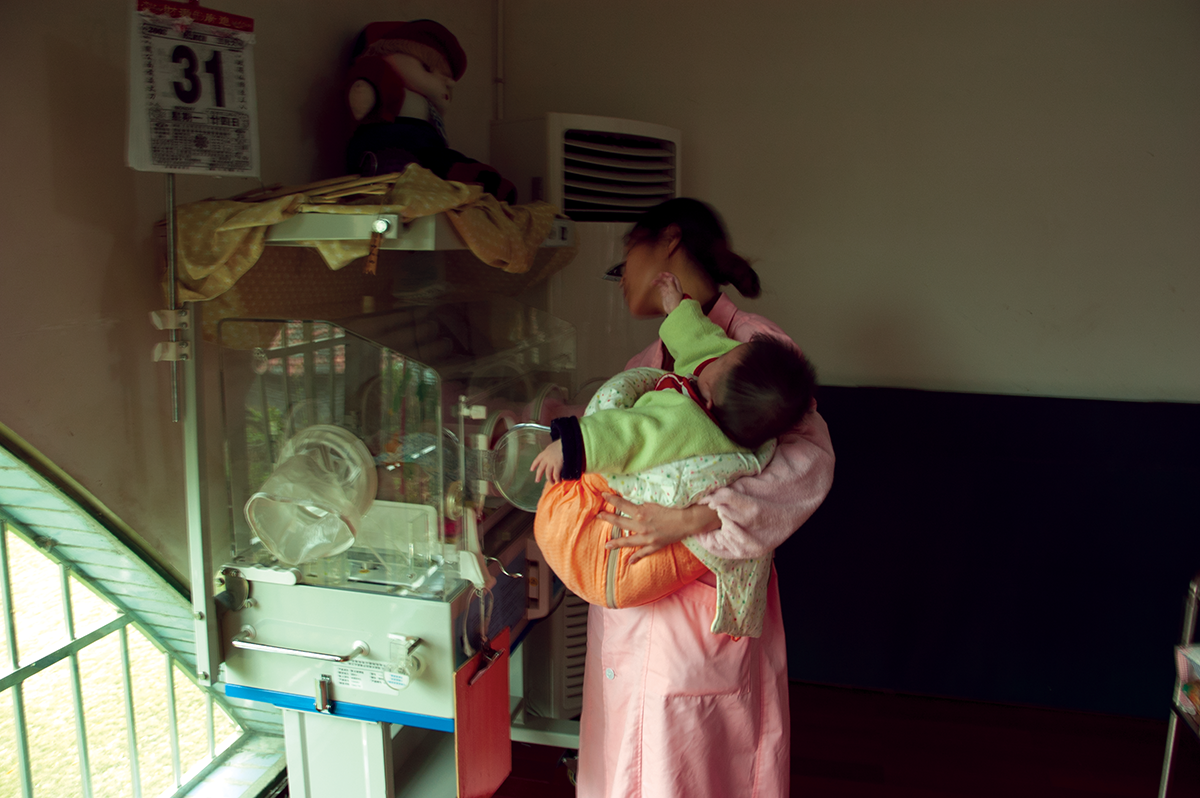
By Yi Yu, PhD candidate, Department of Geography
China has more than 525,000 orphans (NBS, 2015), and each year, another 10,000 infants are abandoned, becoming orphans. Abandoned children are commonly sent to state-owned social welfare institutions (SWIs) for care until adoptive parents are found. Over the past 20 years, international non-governmental organizations (INGOs) have paid considerable attention to orphans raised in Chinese SWIs. These INGOs began collaborating with SWIs to raise orphans suitable for transnational adoption by nurturing desirable personality traits.
To achieve the goal of producing desirable adoptees, INGOs train female professional caregivers in Chinese SWIs to raise the children in “the good” (hăode) way, in which caregivers help the children develop “proper” social skills and “easygoing” personalities. Development of desired attributes requires the caregivers to assume the role of mothers for orphans’ mental development. Consequently, “institutionalized motherhood” becomes entangled with the conditions of employment for professional caregivers in Chinese SWIs, challenging caregivers to develop emotional connections with orphans, while still maintaining boundaries. Facilitated by the “mothering” practices required by the state-INGOs, caregivers may easily develop strong emotional attachments with orphans in their care. As professional caregivers, however, they are not the legal guardians of the orphans, who are subject to adoption at any time. Consequently, caregivers may draw emotional boundaries with the orphans to protect themselves from losing “their” children. Thus, they walk a tightrope between attachment and detachment, revealing the paradox of commodifying and commodified affection.
This project focuses on female professional caregivers in China’s SWIs and examines the complex roles they play in raising orphans. In particular, it examines how “motherhood” becomes entangled in the labor regime imposed by state-INGOs nexus to produce the dual subjectivity of the “institutional mother” and “professional caregiver.”
The research questions guiding this project are (1) How do INGOs and the Chinese state agencies establish an affective labor regime to shape caregivers’ dual subjectivity as “institutional mothers” and “professional caregivers” in the context of transnational adoption? (2) How do caregivers internalize and negotiate this affective labor regime through everyday practices? (3) In what ways does the affective labor regime enable or challenge transnational adoption?
By answering these questions, this project scrutinizes the process by which caregivers internalize, balance between, or react against regimes of affective labor and the influence of that process on orphans subject to transnational adoption. Drawing on six months’ fieldwork in five SWIs in China, this paper analyzes the affective labor regime, the dual subjectivity it provoked, and how dual subjectivity conflicts with each other and leads to dilemmas for caregivers.
Caregivers employed by the SWIs tend to be local working class women (Wang, 2010). They are hired to work day and night shifts, mostly relying on their innate skills. The caregivers’ jobs include feeding children, changing diapers, and playing with children to build trust relationships and contribute to children’s development. Moreover, caregivers are required to take records of each child’s growth and development, especially physical health markers, such as body temperature and food supplement intake. They are a highly gendered labor force with extremely low wages (Wang, 2010: 146). As such, caregivers in the SWIs have particularly high turnover rates.
Building on six months of fieldwork conducted during the summers of 2015 and 2016, this project employs institutional ethnography to examine caregivers’ affective labor and the ways in which training programs of caregivers in the SWI may produce conflicting subjectivities and provoke everyday practices of resistance. Access to SWIs for fieldwork is extremely difficult as the directors are suspicious of my conduct all the time. I got to know most of the SWI directors through an adoption agency based in the United States. By doing volunteer work for them for over a year, I gradually set up connections with various SWI directors. As the social welfare institution is state-owned with hierarchal relationships, I was able to interview caregivers and conduct participatory observations with the directors’ approval.
Research sites are selected for their uniqueness in collaborating with INGOs to facilitate various trainings on caregivers to conduct affective care, such as Nanning SWI, Changchun SWI, and Linyi SWI. These three SWIs are considered pioneers for initiating various new programs representing North, Middle, and South China. Weifang SWI and Rizhao SWI were selected as research sites due to their accessibility, where I have connections to step in conducting fieldwork.
To summarize, this project examines how the imposed affective labor regime in Chinese SWIs results in conflicting dual subjectivities of caregivers, and how corresponding coping strategies are developed to resist, bend, or internalize the hegemonic affective labor regime. This project also contributes to the emerging field of the geography of care and caregiving by focusing on the adoption apparatus that facilitates the affective labor regime embedded in transnationalism. Current transnational care research prioritizes the Philippine nannies migrating to the U.S., Canada, or Hong Kong to offer domestic care while neglecting other forms of care, especially in the case of local transnationalism where caregivers don’t move but ideologies cross borders. The local transnational approach to adoption brings mobility, globalization, and care together, and recognizes transnational adoption as an apparatus composed of institutions, networks, and people.
— PhD candidate Yi Yu’s research “focuses on female professional caregivers in China’s state-owned social welfare institutions and examines the complex roles they play in raising orphans.” Yu holds an M.A. in geography from Syracuse University, Maxwell School of Citizenship and Public Affairs and a B.S. in urban planning and resources management from East China Normal University, Shanghai, China.
References
1) NBS. 2015. China Statistical Yearbook. National Bureau of Statistics of China. http://www.stats.gov.cn/tjsj/ndsj/2015/indexeh.htm
2) Wang, Leslie. 2010. “Importing Western Childhoods into a Chinese State-Run Orphanage. ” Qualitative Sociology. 33 (2): 137-159.

